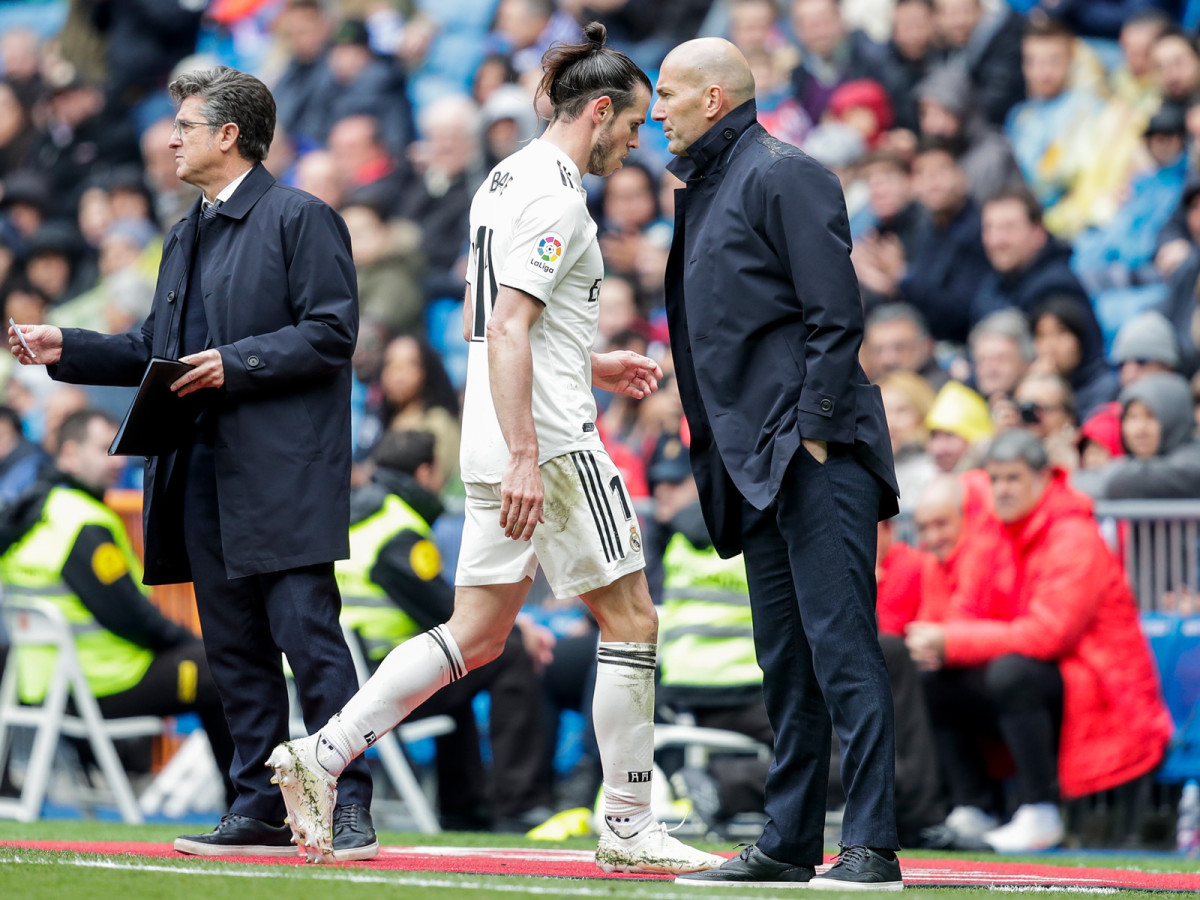How Gareth Bale and Real Madrid's Transfer Saga Deteriorated to This Point

Barring a complete 180 before the Chinese Super League transfer window closes on Wednesday, Gareth Bale will not join Jiangsu Suning on a reported three year-deal worth almost $1.25 million a week. Real Madrid's board reportedly vetoed the transfer, and so this strange limbo period goes on. Bale is not wanted by Real Madrid manager Zinedine Zidane, not much liked by Real Madrid fans, and yet remains too costly for anyone else to be able to afford him. The question, it feels, is not so much what happens next, as much as it is how has it all come to this? How is it that a 30-year-old of his talent, a player who six years ago was the most expensive signing in history, came so close to leaving Europe?
Nobody in football, as Brian Clough once mused, ever says thank you. It can be a cold and brutal business, one that uses sentimentality to bind and motivate, to inspire fan bases, but that can be ruthless once a player is deemed no longer to be useful for his club. But still, even in a world in which beloved stars become expendable overnight, the deterioration in the relationship between Bale and Madrid has been extraordinary.
The perception now is that Bale is a misfit. Perhaps it is true that he has not quite done what was hoped when he joined Madrid from Tottenham for $106 million in 2013. He has not proven to be a long-term replacement for Cristiano Ronaldo. He has never threatened to win the Ballon d’Or. And yet to paint him as a flop is equally bizarre.
His time at the Bernabeu has been hampered by injuries, it’s true, but he’s still started 133 league games in his six years in Spain. More than that, he’s won four Champions League titles, twice scoring decisive goals in finals. One of them, his first of two goals against Liverpool in 2018, is one of the greatest goals ever scored in a game of that magnitude.
His Real Madrid career may have been defined by moments rather than consistent excellence, but what moments.
And yet Bale has never seemed entirely comfortable. It’s not just that he still struggles with the language and spends the majority of his life playing golf rather than engaging with other aspects of Spanish life (as the case of Sergio Aguero shows, it’s perfectly possible for a player to be a success at a club without embracing the local culture). While Ronaldo was still at Madrid, he fairly clearly scorned Bale, although whether that was because he was doubtful of his talent or his claims to supplant him is unclear. But after Ronaldo left, Bale was unable to fill the gap, in part because of injuries. He still feels like a player feeling his way at the club, not like a veteran of six years.
Now the opposition comes from Zidane. He may have been the coach in October 2016 when Bale signed a six-year deal worth a reported $750,000 a week, but if he ever valued him, he clearly does not now–and the reasons for that shift seem key. Part of it is Bale himself, of course: he’s now 30 and there can be little expectation that he will ever become the best player in the world. In addition, there are suggestions that Zidane has been unhappy with Bale’s attitude, specifically his willingness to adapt his game to the overall plan.

But more critically, Zidane is in a very different position now. Back then he was a safe pair of hands, a politician who could get along with everybody, coaching his celebrity squad to Champions League success. But he left Madrid in 2018 for a reason: his awareness that the squad needed a major overhaul and that club president Florentino Perez would give him neither the resources nor the autonomy to enact that.
Zidane’s return toward the end of last season came with certain guarantees, and he clearly now feels emboldened to defy his president. Perez, it’s been reported, demanded Zidane should find a place for Bale in his plans, to which Zidane responded by leaving him out of the squad for a friendly against Bayern Munich and then publicly calling for his departure after the game.
Those comments seemed needlessly graceless, and Bale’s camp responded with both understandable fury and an insistence he would not leave for a pay cut, which is both miserable and reasonable. It’s a great shame that Bale’s abilities are not being seen, but equally, why shouldn’t he hold Madrid to the daft valuation the club made three years ago? After Bale did appear in subsequent friendlies vs. Arsenal and Atletico Madrid–even scoring vs. the Gunners–he has been left out of the club's trip to Munich for another set of preseason matches, with the player reportedly reeling from the collapse of his proposed transfer.
All of this, perhaps, is the issue of modern football. Managers and players have always fallen out. Clubs have always sought to move players on. But the rise of the superclubs has led to the rise of superplayers on supercontracts, and the problem is that only superclubs can afford supercontracts. That means that when a rift comes, there are very few places for the superplayer to go: a handful of other superclubs and China. In that sense, the Bale situation highlights the crazy financial disparities that blight the modern game.
